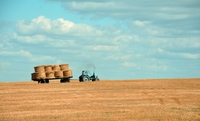Chester & Cheshire
- Home
- Add Listing
- Going Out
- -- Night Clubs
- -- Pubs & Bars
- -- Restaurants and Cafes
- -- Theatres and Cinema
- Pets
- Places to Stay
- Professional Services
- Services
- -- Business To Business
- -- Childrens
- -- Finance
- -- Hairdressers and Beauty Salons
- -- Health & Safety
- -- Property
- -- Tradesmen
- Shopping
- -- DIY
- -- Electrical Equipment
- -- Entertainment
- -- Fashions
- -- Galleries
- -- Home Improvements
- -- Motoring
- Things To Do
- -- Attractions
- -- Outdoor Activities
- -- Sports
- Retail Therapy
- Chester Tourist Guide
- -- Chester Zoo
- -- Chester Cathedral
- Links
- Blog
Quick Search
 Farmers face unique challenges throughout the year when it comes down to maintaining and operating agricultural equipment, and winter is no exception to this. The key to making it through the winter season is preparation - being ready for when the harsh conditions do hit, and to ensure that everything is ready for action when spring arrives. In order to avoid the costly disruption caused by the winter weather, here are some top tips to help farms prepare for the deep freeze. Having a trusted local fuel supplier is key for a farms success over the colder months, oil distributors Shropshire are used to helping local farms make it through the winter with minimal hiccoughs. Another consideration to make is your farm security - opportunistic thieves can target rural areas during the colder months as they are perceived to be easy lone-targets; consider installing remote farm CCTV Cheshire to give you extra peace of mind. Protect Your Machinery Ensuring that all farm vehicles and machinery are in a good working condition is essential to running an efficient farm; and this has never been more important than when your equipment is in winter storage. Having effective lubrication is key to protecting your equipment when it’s not in use for extended periods of time. If a piece of machinery is left unlubricated during the wet, cold, winter months the metal surfaces can become corroded and the knock on effect can mean your equipment functionality is compromised. This can result in costly repairs or replacement of expensive parts and components in order to get the equipment back up and running smoothly. Don’t Freeze Up When the inevitable winter cold sets in, a farm’s fuel supply can be at risk of forming wax crystals which can clog up an engine or even prevent the machinery from starting at all. Adding in Anti-Wz, which co-crystallises with the fuel wax crystals to change their shape and make them a lot smaller, allowing the engine to operate at a colder temperature than the initial fuel specification. In order to improve the cold flow and handling properties of your fuel, Anti-Wax additive is best added to your supply while temperatures are above six degrees Celsius and before signs of waxing start to appear. Smart Fuel Choices As the new year approaches, there is a real opportunity for the agricultural industry to reassess its traditional reliance on diesel, improve its HSE credentials and make a lasting difference to air quality. In some cases, taking steps to reduce emissions can be costly and disruptive – particularly when upgrades to machinery and storage solutions are required to accommodate the switch. The fuel’s winter grade is also especially beneficial when making the switch in the build-up to winter preparation, minimising the risk of waxing and improving cold start properties during lower temperatures. Having the right fuel, lubricants and additives – and a reliable supply of them – is essential for the smooth operation of farms during the quieter winter season. |
Archives
March 2023
July 2022
May 2022
April 2022
October 2021
August 2021
April 2021
March 2021
November 2020
October 2020
September 2020
August 2020
July 2020
June 2020
May 2020
April 2020
March 2020
February 2020
January 2020
September 2019
July 2019
June 2019
April 2018
January 2018
December 2017
November 2017
July 2017
April 2017
April 2016
March 2016
January 2016
December 2015
October 2015
August 2015
May 2015
January 2015
September 2014
July 2014
November 2013
July 2013
November 2012
Other Sites In The "North West and Wales" Network
North Wales Online Community
Nursing Homes North West and Wales
Accountants North Wales & North West
